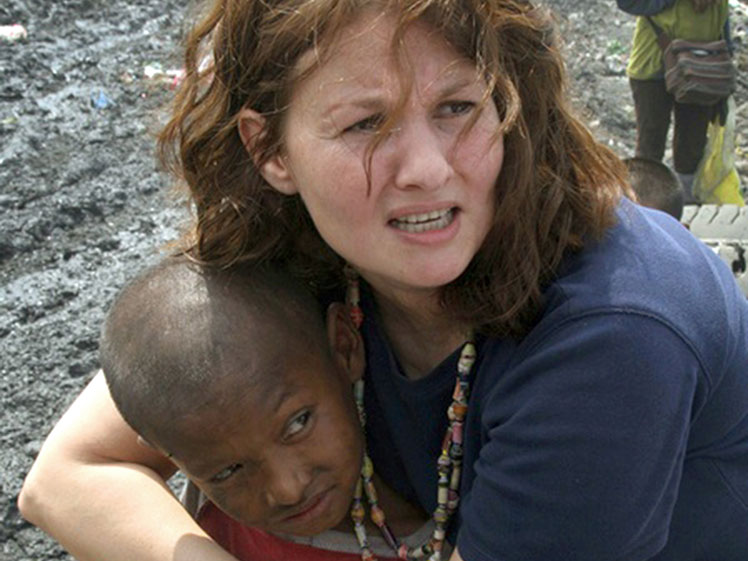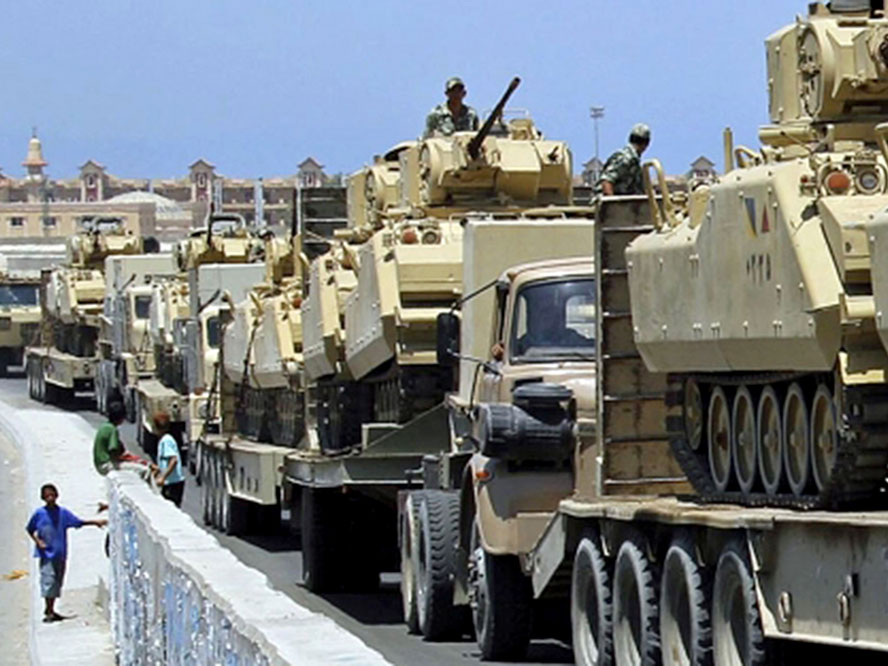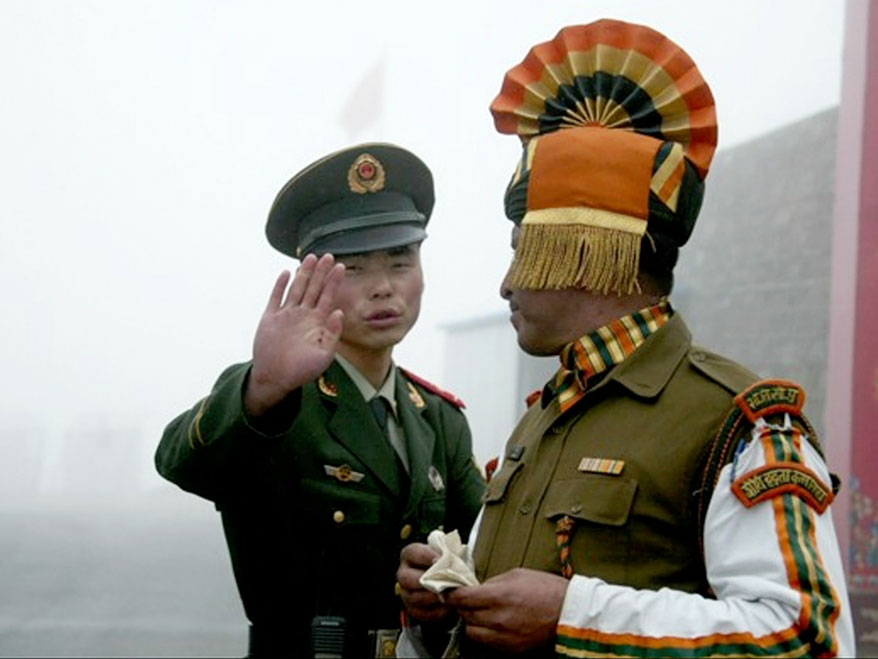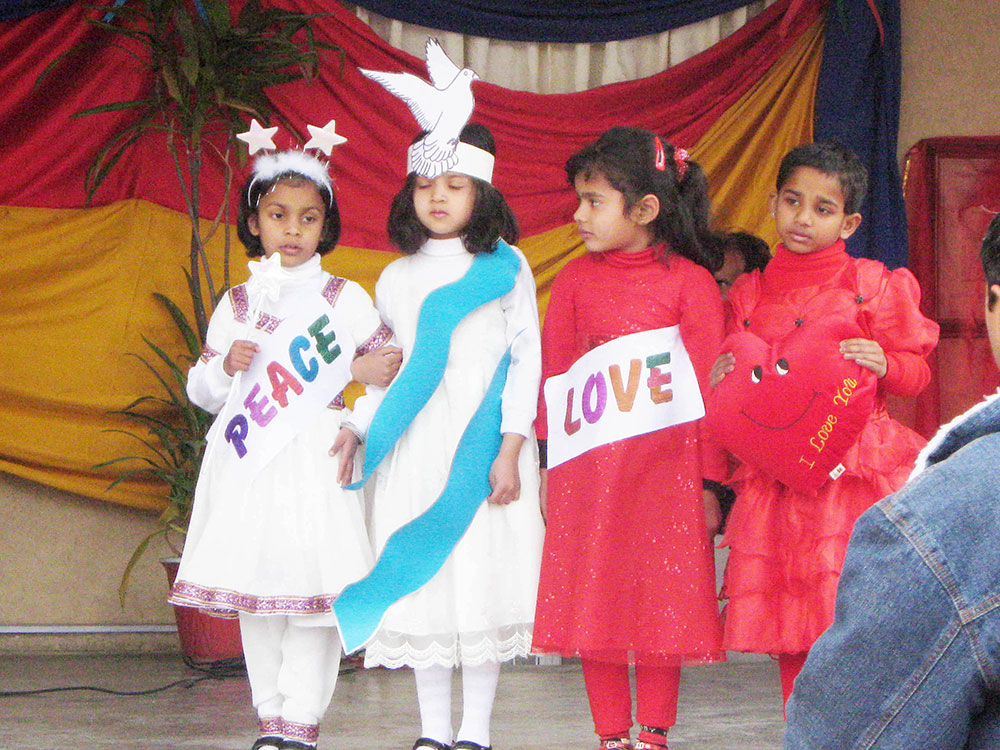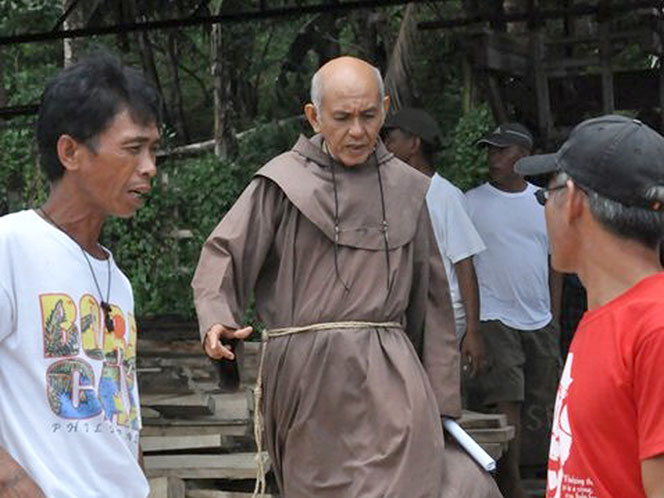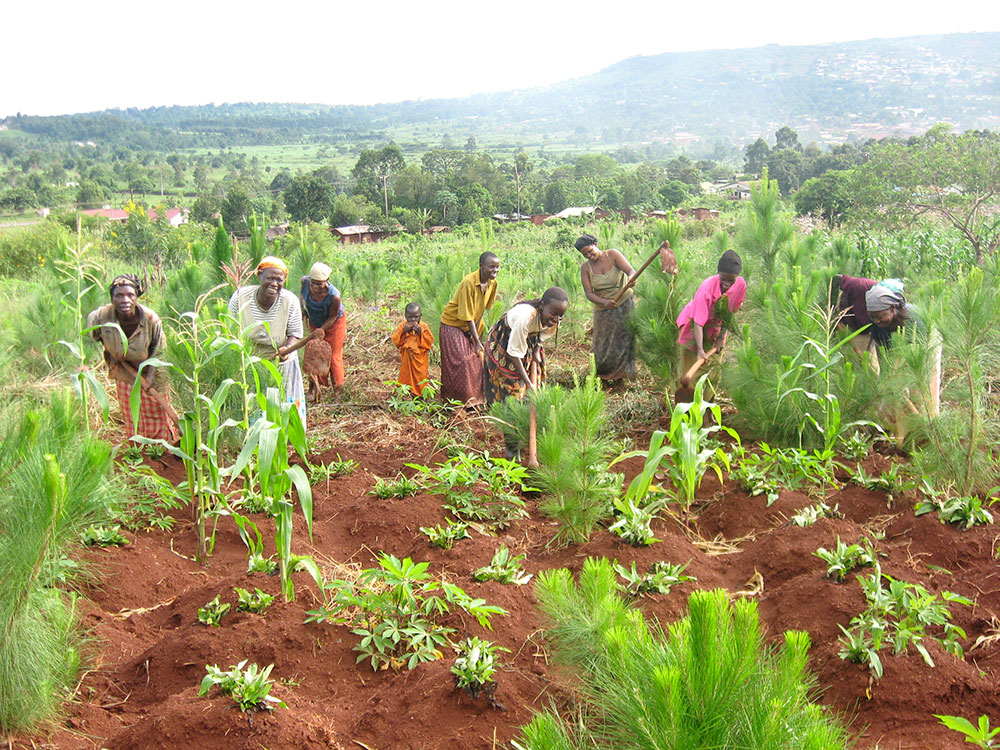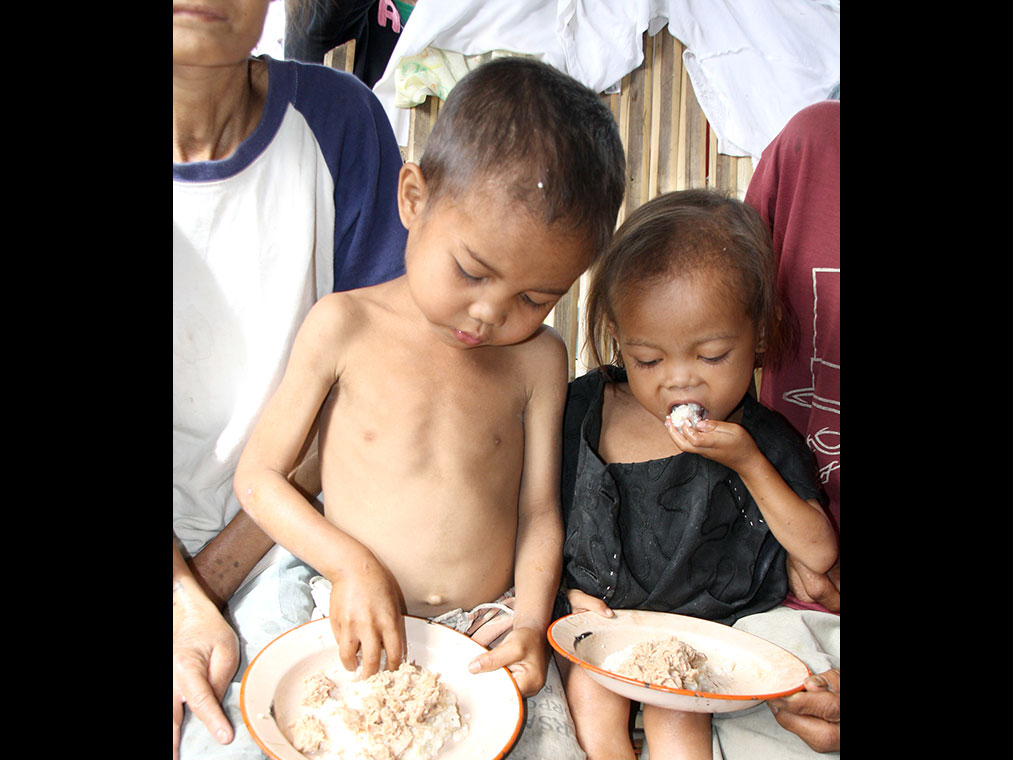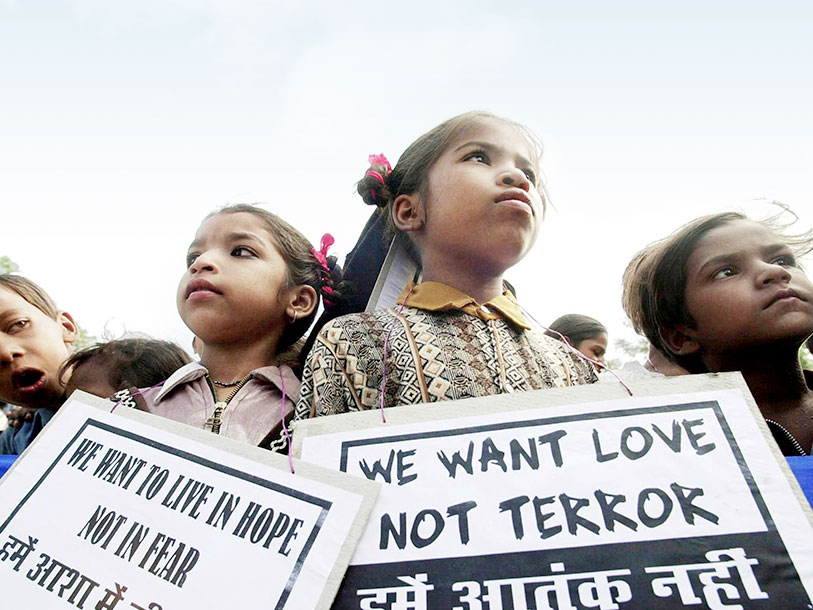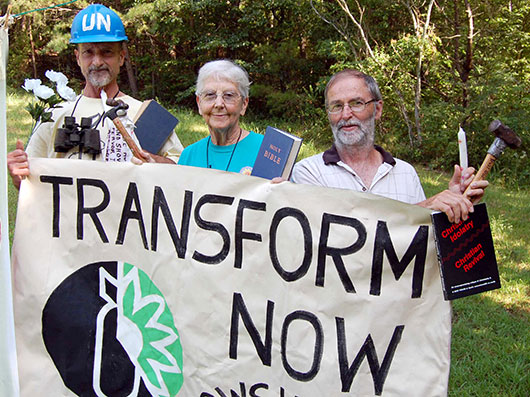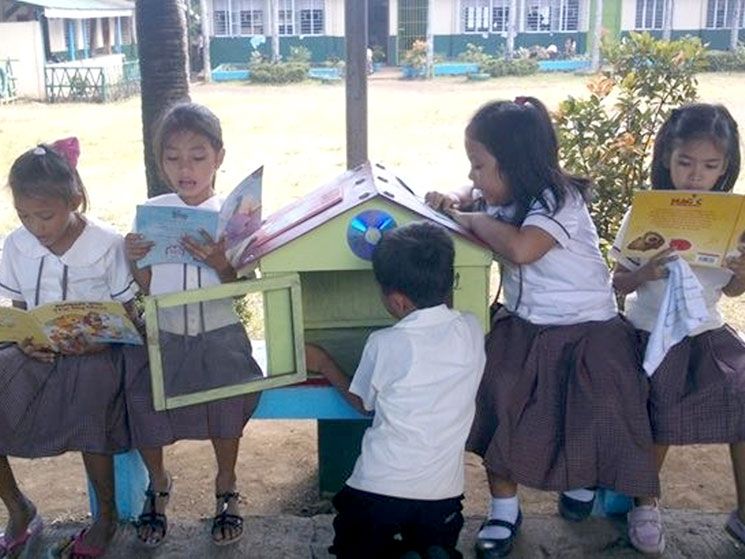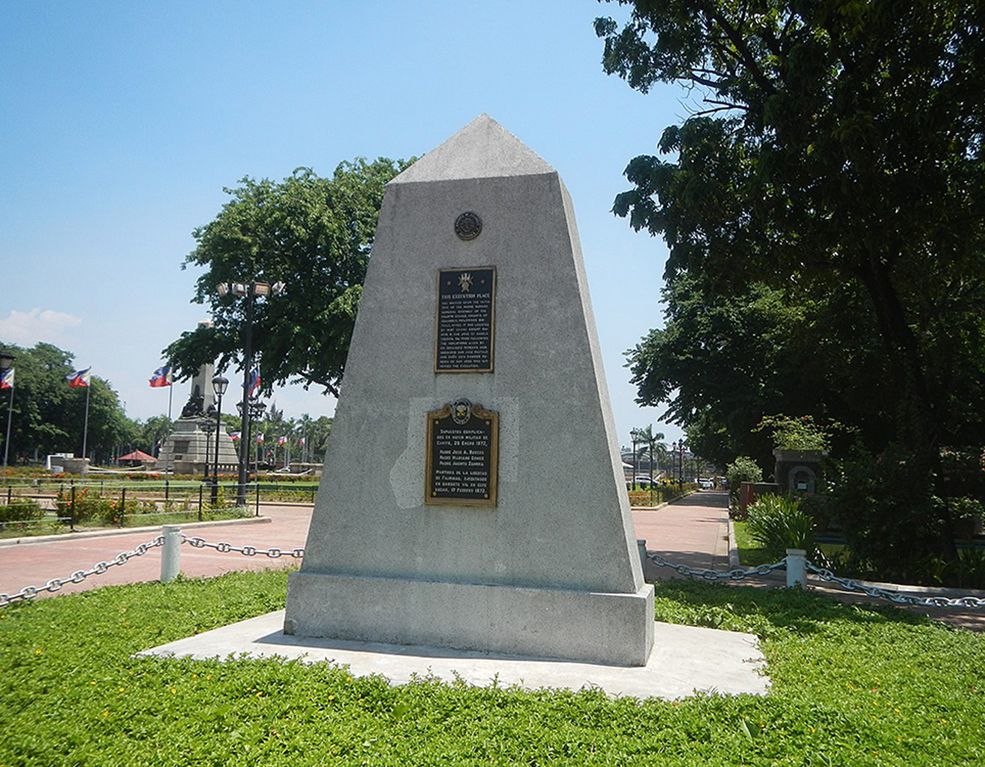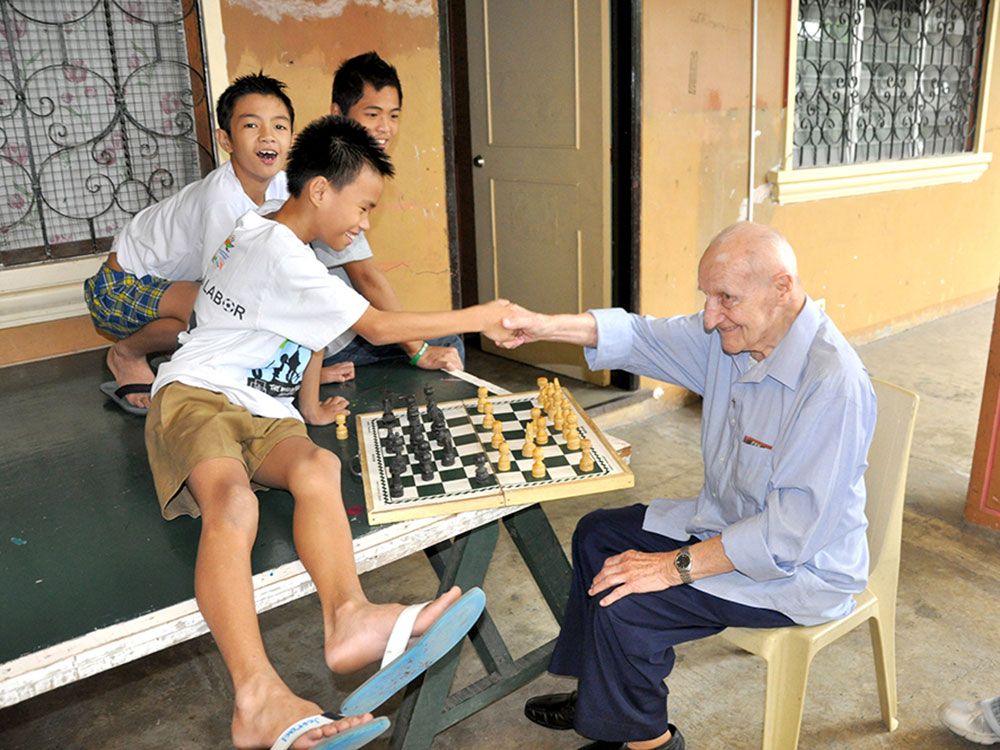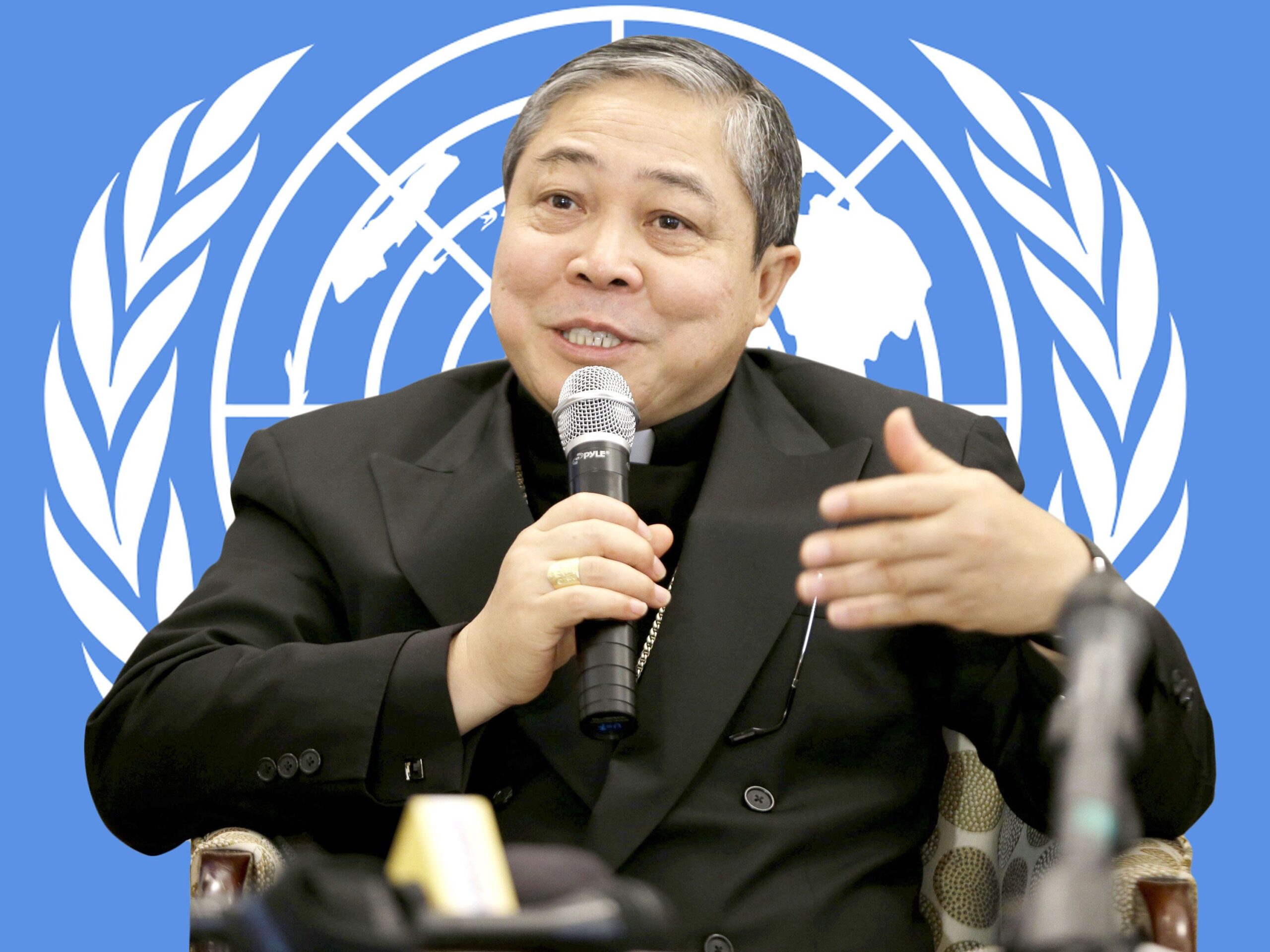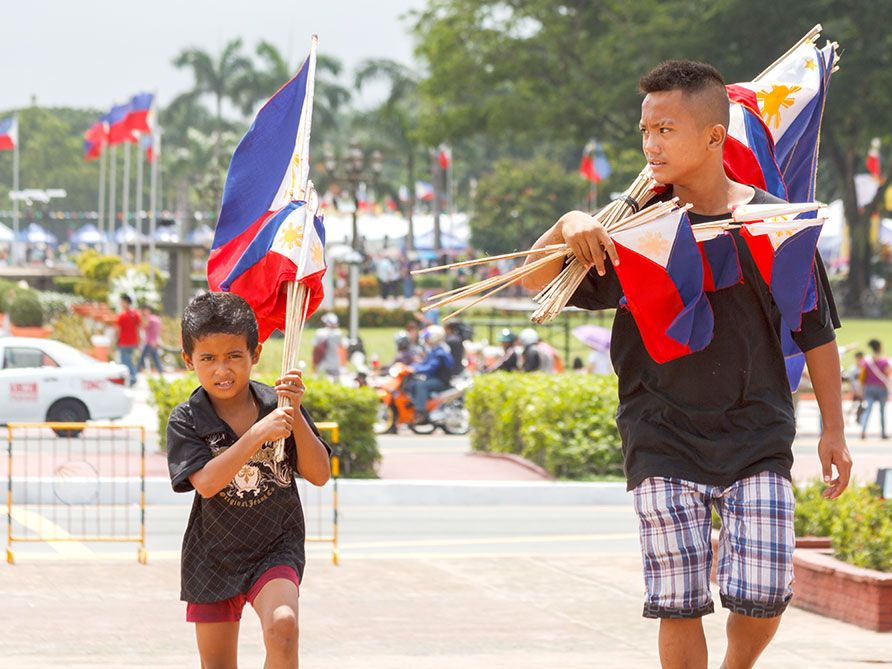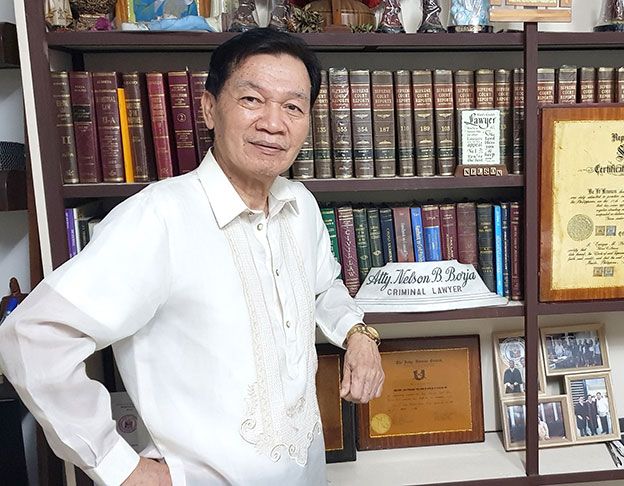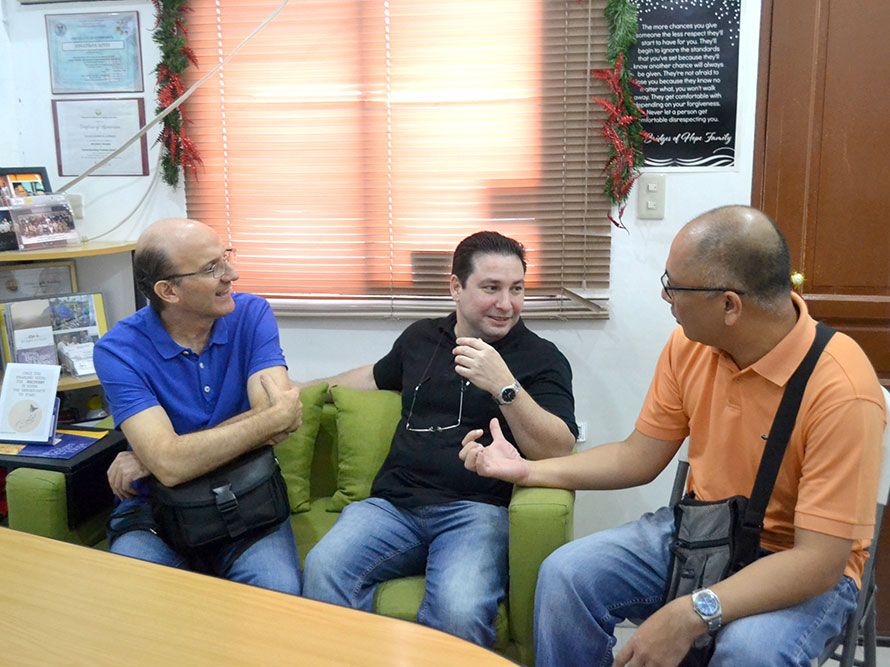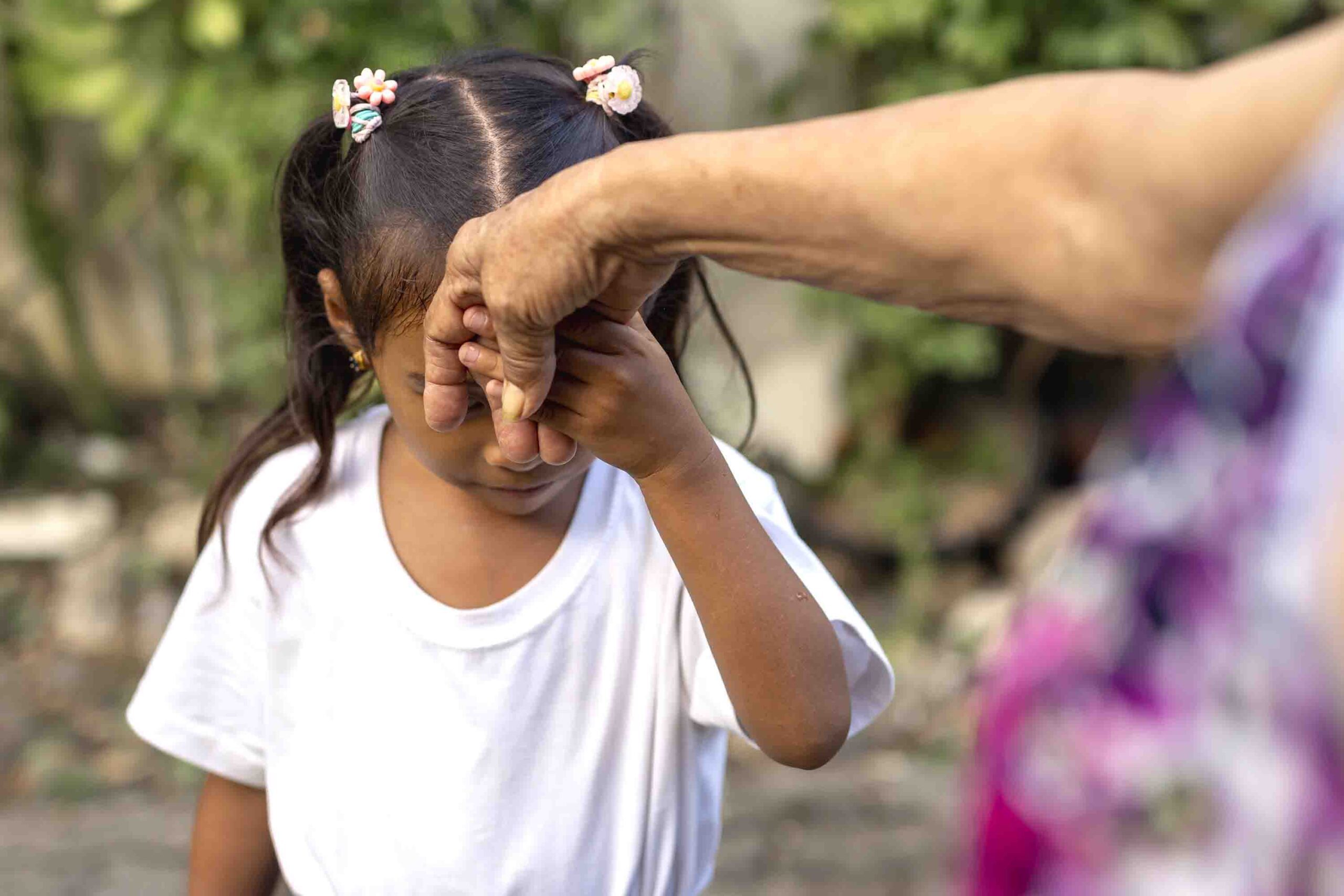Jane Walker’s Philippine Christian Foundation (PCF) is working with poor communities in dumpsites in Tondo, Manila and Baguio City in the Philippines. This non–government organization aims to keep child laborers off the dumpsite and to help them avail themselves of education, while assisting their families maintain a source of livelihood and sustain food security. No less than Queen Elizabeth II of England made her a Member of the Order of the British Empire in 2006 in recognition of her charitable work in the Philippines. Local and international media organizations dubbed her “Angel of the Dump” for championing the poor people of a country not her own. There is an interview with this 48–year–old mother who actually “fathers” slum kids and their families. Let this “angel” inspire you to accept your past as a part of your future and to see your trash as a treasure.
They say people’s passion in helping others is drawn from a personal experience. What is this personal experience that ignited your passion in helping people, especially in the slum areas?
Geez, it’s really personal. I came from a very dysfunctional family and disputes and violence went on in the house, enough to force my sister to live away from us for seven years. When I was only 15, my parents made me leave school early and I became homeless. I became financially independent even if I still haven’t finished school. I want to go on to college but I couldn’t afford because I have to earn for my own rent, food, clothes and all even if I was still 15. I worked and got different jobs but I was fortunate because, as the years went on, I became circulation and sales director in the newspaper industry. It took a long time to work from the bottom all the way to the top but when I did get there, I was earning and enjoying the benefits of that kind of job.
But I wasn’t particularly fulfilled. I felt frustrated that I was selling a commodity I wasn’t sure if that was doing good for anybody. I just felt that my job lacked something. So I decided to take a sabbatical leave. I made this prayer. I said “I’ll go anywhere, I’ll do anything but I just want my life to change.” Two weeks after that, I kept on thinking about the Philippines, which is strange because I didn’t have any contacts there and I didn’t even know where it was until I looked it over in a map. When I saw where the Philippines was, I got on a plane and thought “Why not?” I don’t have anywhere else to go and I just knew that I wanted a sabbatical. I thought three months in the Philippines would give me time to rethink my values and what I want to do with my life.
When I got here, I kept reading in the newspaper about people getting evicted in the squatters’ area and I felt curious. In the beginning, it was pure curiosity. I jumped on a taxi and told the driver to bring me to the worst squatters’ area that he knows and he brought me to North Harbor where the Smokey Mountain was. Upon alighting the taxi, I followed two little boys who were dragging a sack along a dirt track. The area was the temporary dumpsite at Pier 18. The Smokey Mountain closed in 1994 and the temporary dumpsite in Pier 18 opened in 1995. I arrived in 1996 so there was no non-government organization yet in the area. There was nothing but people and shanties.
As I was standing there the two children came up to me and they were just staring, no smiles, nothing. They just stared and I felt really uncomfortable because it looked like I didn’t have a right to be there. I looked at the children and, you know, sometimes when you look at somebody’s face, you’ll know what’s going on inside.
I looked at those kids’ faces and I had a flashback. I just felt that they looked as if they were powerless to change their future and it reminded me of how I used to feel.
I felt so trapped when I was a kid because I had nowhere to escape to and I didn’t have a safe place to go. In fact, I tried to commit suicide when I was 12 because I was so frustrated for not being able to control the things that happened to me. And I saw the kids in the same way except that it wasn’t an abusive childhood that was causing it but poverty, as if poverty was a punishment for a crime they did not commit or something they do not have control over.
When I felt all those emotions, I realized that if I walked away and don’t do anything, what kind of person will that make me? What kind of person will I be if I just walk away?
When I’m with people and I tell the story of how I stumbled on this awful dumpsite and I did nothing to help, I wouldn’t be able to live with myself after that. So that was when I decided to go back to England and raise money to build a day care center and, in nine years, this is what we produced. There are hardly any children working in the dumpsite now because we have nearly 900 kids in our education program. Some 150 of them are from the Baguio City dumpsite.
Today, we have no classes because of the rain but the children still come because this is better for them. They’d rather be here in the classroom than at home under the pouring rain. This is like a safe place for them to be. This is where they want to come. Even during holidays, the school is full of kids playing and roaming around. So I am very glad that we produced and created this for them.
Recycled couture
The PCF is supposed to be an educational institution and yet the school is also providing food, uniform, transportation and healthcare for its students. Why is it that PCF also has to cover these needs of the children?
We have breakfast and lunch feeding program because if the kids don’t get fed, there’s a danger they’d go back to work because they don’t have money for food. We also give them healthcare, grooming and medication and we extend these benefits to the childrens’ parents and siblings since there were kids who became orphans because parents cannot afford to buy medicines. We have nurses, pediatricians and social workers who attend to the children’s physical, psychological and emotional problems and also their families’ because they have a chunk of problems as well.
Although we are quite child–focus in our Foundation, I think we really became family–focused. Now we look at the whole family and see how we can strengthen it so that it will become a better living environment for the kids. Children running away from home become street beggars so I am very keen on strengthening the family unit to prevent children from being so because once they go to the streets, that’s it. We lose them and it is hard to get them back.
Providing for the school children’s basic needs and extending the healthcare to their family is already a big help for your Foundations’ beneficiaries. What prompted you to help them further by providing employment?
As time went by, we discovered that we had some really vulnerable mothers. Some have been recently widowed, or the husband had left or a neighbor had died and they took the orphans so I thought we needed to help these women earn an income. We started to teach 25 to 26 mothers to make jewelries from pearls and glass. When I went back to England, I sold the jewelries during my talks as a way of raising a bit of money for these moms. It was really doing good at some point until 2008. The economic crisis affected us; we lost 20% of our income because of the exchange rate. I had to look at our overall budget and cut back a little. The only way I can save money was not anymore buying pearls and jewelries to sell and this gave us a problem because the mothers became financially dependent on the sales of the jewelries.
As a team, we decided to use recycled materials to make products but we wanted to produce something that is unique to the Philippines. Eventually, we came up with glossy magazines and made beads from these recycled materials. We combined the recycled beads with a little bit of bling. And these were sold as bracelets and necklaces through couture. It wasn’t enough for us to keep the moms earning an income so we decided to make other products, like those using pull tabs, which we hadn’t seen in the Philippines prior to the time we first made them.
These really worked well. The kids’ mothers and fathers wanted to become involved, too. I did product testing for one whole year here in the Philippines. Kultura and SM malls saw us and signed us up for a cause. Later, they told us that we’ve been the number one seller since the day we collaborated with them. We started to generate income and were able to train 350 more parents to either make ring purses or sew. And we began to sell in Japan, England and in other countries.
After your students graduate from high school, does PCF have a plan for those who couldn’t make it to college?
What we want our students to realize is that not all of them will go to college. Some of them are malnourished since birth so they have a hard time learning. They may graduate from high school but they may not probably get the grades they need to get to college so we are able to alleviate a big problem for them through our jewelry making. This becomes employment for the children because it’s not wise for me spending 12 years educating child laborers if they would go back to the dumpsite after they get their high school diploma.
If they could not get to college, some of our students may become carpenters, hairdressers, sewers or manufacturers of our jewelries. This is why we also have to branch out. We want to take bigger orders so we can manufacture more for companies that sell on large scales. In four years’ time, most of our students will be graduating; we need to be moving.
From initially providing education, PCF went on feeding, clothing, transporting and giving the kids’ families employment. With all of these interlinked ventures, what exactly is the thrust of all these?
The thrust is always the same: to get families off the dumpsite, to end child labor and to, eventually, relocate families so they don’t have to live among the garbage. The only way we could do that is to develop a market for the products so that when they are relocated, they can still earn an income. With a livelihood, they don’t need to migrate back to Manila. This is our long–term goal and it will take some time to get there.
Food credits
It’s a good thing that you are able to hit two or more birds with one stone in your work. But can you tell us how difficult it has been along the way? What was your worst difficulty in your work here at the PCF?
The worst was when the kids were getting food, enjoying after class/school activities. They were getting a good school life, almost as good as that from any international school. They were well resourced but at the end of the year, over 35% of our kids are dropping out of school and I just wonder “how could that happen?” I asked the teachers why and they assumed that the kids were not interested in education anymore. But that was inconsistent because I knew the kids on a personal level. I stayed on weekends at the dumpsite and I knew how important education was to the families. Actually it was the families who asked me to build a school.
I asked them their reasons for dropping out and I got a very simple answer. They said: “We are the oldest in the family now and we have to go back to work. We also want our younger brothers and sisters to enjoy nursery and school. We have to earn money now because we are older.” I was really shocked because the ages of those kids were just six to eight. They were very young and yet they were giving up coming to a building that is clean and safe for them, getting an education and a future because they felt guilty that their family did not have enough food to eat. I got the parents and asked them: “At what point did you feel that your child needs to drop out of school? Could it not have been all right for you to allow your children to stay at school because they were given healthcare and food thus lessening the pressure on you because they’re on us?” But the parents answered: “We didn’t ask them to leave. They wanted to leave.” I was shocked again after finding out it was actually the children’s choice to drop out of school.
So then I thought these kids were feeling guilty for coming to school being fed and looked after. They feel they are not worthy or that they don’t deserve the opportunity being offered them and that’s why they would drop our and go back to the dumpsite to work. It was such an eye opener for me and it changed the shape of our work completely. I know that food stability is the biggest challenge that families in the dumpsite face. Of course, the pressure is to get out and earn money to buy food. I understand that but what I don’t understand is the pressure being carried by the entire family and how the children feel responsible for their family, causing them to leave school.
This put us to long thinking and praying. We have to find a solution, something that doesn’t promote dole–outs because I don’t want to just give them food. It’s not going to work. So we came up with giving the kids rice credit for coming to school everyday. We reward them for school attendance and this pushes the kids to be punctual, too. Everybody is encouraged to get to school because they can earn rice. Maybe, at the dumpsite, that’s all they could be earning so they might as well get it from school.
For academic, behavioral and hygienic achievements, kids can earn canned goods and vegetables.
What happens is that when the kids go home, they tell their parents: “You need to help me because if I learn this, they are going to give me a tin of tuna or corned beef and I already brought home two kilos of rice for going to school and if my uniform is clean and tidy, I can get another tin of sausage.” It changed everything overnight. We noted 100% school attendance, student behavior has rarely been a problem, academic achievements went up 25% and teachers felt more in control in the classroom. Most importantly, we got parental support, something that I had a hard time getting before because they were so focused on earning money.
Now parents would go to school and ask teachers: “What are the other goals for my kids this week so I can make sure they will achieve them?” Admittedly, they weren’t motivated by the prospect of having their kids get quality education. They are driven by their need to have food but I didn’t care because I got the results I wanted, which is perfect attendance and good achievements. And it was done with a little bit of rice and canned goods.
We have grants for canned goods and rice so that’s part of our program now. Without it, we wouldn’t be successful because everything revolves around food. Even our volunteers would rather work here than work on the dumpsite all day to earn enough for a handful of rice. I think this is the biggest challenge for us, and our greatest success as well.
For most non–government organizations, fund–raising is the biggest difficulty and yet it wasn’t the case for PCF. Why is this so?
I’m not saying it is not. Fund–raising is a headache. We empty our bank accounts at the end of the month and we send all the money we raise in England to the Philippines.
Fund–raising puts pressure on me or on our fund–raising team in England. For me, the heaviest pressures are the ones affecting the families. When the children have problems, that will occupy my mind more than where I am going to get the next peso because everything we do is for them. If they are not happy, we are not happy. We worry about them and we want to make sure that they get the best opportunity to be in school.
The nightmare
What were the challenges PCF faced in building a school at a dumpsite?
Building the school was a nightmare. We spent two years soliciting help from the National Housing Authority and the previous government before, eventually, signing a memorandum of agreement. I had to spend a lot of money on the foundation because we were building on a landfill. We spent P15 million just for the underground engineering because the ground was so unstable and is on an earthquake fault line.
Our plan was to construct a four–storey building using container vans, which had never been done before. But some would tell me to give up building a school at the dumpsite because of the headache it will entail. But then If I built on concrete, the foundation has to be deeper as concrete is heavier than steel. I thought I stood a better chance of getting solicitations for a school built out of container vans but it didn’t pay off. What we did was to sell each room for half a million to companies and corporate donors. The rooms were then dedicated to firms in the Philippines and abroad.
We built it bit by bit. It was very difficult because I needed to raise money for the general operating cost of the old school and, at the same time, for building the new school. Those were my most stressful years and when I gained a lot of weight, I felt my working ability was being stretched to the max. After all, the school was another blessing when it was completed.
How important are corporate and individual donors to the work of PCF?
Corporate donors and sponsors have not only built the school but also developed our projects. They don’t only sponsor a classroom but also donate things, such as a oven, for the school. It’s a brilliant donation because the kids are getting pandesal, pizza and pastries that are freshly baked. When the bakery is up formally and running, it will become an area for our vocational training. Meanwhile, individual donors have been always around for volunteer work while some sponsor a student with P1,500 per month. That’s regular income every month or quarter or however they choose to pay. It becomes a source of stability, aside from the proceeds of selling our products.
What’s your vision for the PCF school? Are you planning to establish more schools like this on other dumpsites?
We will make this work financially stable first. As of the moment, only about 35% of our income is secured. We hope to earn more income from product sales, child sponsorship and corporate donations. But until this (school in Tondo) works and the Baguio City project is financially sustainable, we are not going to another dumpsite. If we stretch ourselves too far, we will become over extended so it’s best to stick here. At the moment, we are helping about 6,000 people because each kid comes from a five–to–six–member family. We have at least 900 students from both Tondo and Baguio dumpsites.
Life is very tough
The PCF connotes religion. Do you hold Christian fellowship and faith events at your school?
It’s not really religious. I made a personal decision to be a Christian but I don’t force that on anybody else. I don’t believe that you should make people attend church or you have to become a Christian or whatever so they can avail themselves of the benefits of the school. All are welcome regardless of race and religion. But since we discovered that the kids are predominantly Catholic, they have religious studies because that’s what they want. For others, we have a spiritual affairs officer to provide pastoral care to children and families if they need it. But again, religion is not a condition.
How is your relationship with God? And how does your religion play a part in your charity work?
My family members were atheists and it took me 15 years to decide whether I should have a religion or not. When I decided to have faith in God, I made it on my own without any pressure, and because I made it freely, I value it more. It’s the same thing with faith. Faith is a wonderful thing to have if one finds and lives it on his/her own accord. Faith underpins everything and one can draw strength from it.
Some of my best ideas came through prayer. I share that information with a lot of people but what they do with it is up to them. I’m not telling people that’s what they have to do but I’m just saying that it worked for me. In reality, a lot of kids and their families at the dumpsite have given up hope in their life. They feel God has turned His back on them, that they are being punished for something they didn’t do. Life is so hard like the daily struggle for food year in and year out. Life is very tough and in order to cope, they had given up hope and a lot of them had given up faith as well.
When this work started lifting people up, they thanked God for it and said that God sent me here. It’s heartwarming if I have brought hope and faith to the people who had given them up. It’s a wonderful thing to give to someone more than food or education.
Filipinos helped me to heal
You left England for a sabbatical, wanting for a change in your life. Did you find that change here in the Philippines?
Before, my life meant nothing. I feel my life only started when I made the decision to come to the Philippines. And the Filipino people were a big help in my healing process. I had so many scars and wounds due to a difficult upbringing. But being around Filipinos with so much love, happiness and very sunny outlook, even in times of dire poverty, it was easy to get infected by their good traits. The Filipino culture simply rubbed on me.
Are you saying you’re not leaving the Philippines? Are you residing here for good?
I really love it here and the people. And I think home is where the people you love are. Home is not a building or a place, it is about people. Although I have an amazing sister, her husband and my nephew back home, and friends and all the rest in England, I would rather live here and visit England than the other way around. My son and I always call this home and he also wants to come home. When my son turns 16, we’re coming back again to live here because, ever since, I always have felt we don’t fit in, like a fish out of water, in my own country.
Looking back, was your trip to “unknown” Philippines worth it? Did you find the change that you were looking for in your life in the kind of work that you do here?
Yes, because it gave me a sense of purpose. It made me focus on other peoples’ problems and not on my own. Many of the kids have experienced rejection, hardships, or unworthiness, emotions I could relate to. I feel their poverty and lack of food, too.
Being able to know that I helped alleviate some of their emotional baggage was healing for me. It is important for me that the children don’t suffer the same way that I did. If there’s anything I can do to help them not to experience the battle that I did when I was growing up, that would make my life worthwhile. And that would also allow me to make peace with my past because good came from something bad, which made me think, “it wasn’t bad after all.” I had suffering but it wasn’t forever; there was an end to it.
First piece of the puzzle
You really did a good job worthy of recognition. How do you deal with special citations and accolades, especially that one from the Queen herself?
I get a lot of thanks all the time for having done what I started. I feel so uncomfortable with people saying: “Oh you’ve done an amazing work!” because I have personally benefitted from it emotionally. If I have a solid purpose and know what to do with my life, it is because of this work. The staff, the managers, parents, donors and the kids themselves, played a big role here. I just happened to be the first piece of the puzzle. That’s why I never felt that it was an effort of just one person. I keep my feet on the ground. I know who I am and where I came from and I know that I never did this on my own. I know that this is a joint effort although, people like to give the credit to one person. When I received the award from the Queen, I received it not as Jane Walker but as a representative of the PCF. I received it on behalf of everyone who has an involvement in this charity.
Where does PCF’s work end? Is building a school and providing employment to families at the dumpsite? What’s PCF’s ultimate goal?
I think only when the relocation of families at the dumpsite to a community in the province materializes can we say our work to have been really successful. This is because what we, like the government, really want to see is an end to families living on dumpsites. But unless you provide a sustainable livelihood to a community that you are trying to relocate, it won’t be successful. The livelihood component should be put aright first of all, to ensure a better flow of income.
Our products can be made anywhere and one just have to put them on a bus or transport them by air. The government can also put up stores and manufacturing sites of the products anywhere in the country. Relocating 6,000 people is very possible. We just have to get more orders and sell more so we can help sustain them through remote employment.
The ripple effect
What would you advise those people who wanted to help but do not know how or where to start?
Start small. Every good we do to a person has a ripple effect. If you can encourage a child to go to school, you are not helping one child but actually, you’re helping that child’s children and maybe their children’s children. It doesn’t matter if you don’t have the time or money or whatever. You can always do something to someone. It’s better to help just one person than helping no one at all.
You may also help organize a food drive or volunteer your skill. Just make the effort because what you get back is so much more than the time and effort that you give. It’s well worth the effort. And for people interested to help us in PCF, all they have to do is send an email to Jane Walker at jane@pcf.ph.
– To learn more about the PCF and its charitable work in the slums of Manila and Baguio City, visit www.p-c-f.org or email them at info@p-cf.org. The PCF holds office at Unit 1621 City and Land Mega Plaza, Corner ADB Avenue and Garnet Road, Ortigas Center, 1605 Pasig City.

